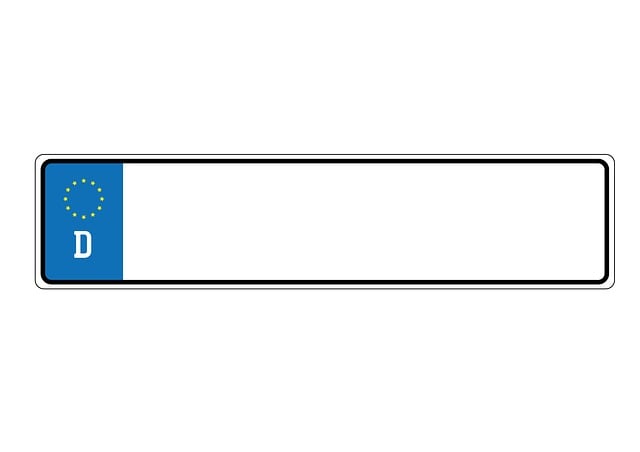Advanced License Plate Recognition (LPR) technologies raise privacy concerns for vehicle owners, leading to a focus on Select License Plate Privacy. Solutions include custom unidentifiable plates and privacy films that protect data without disrupting regulatory processes. Balancing tracking benefits with anonymity, these measures enhance security against identity theft and data breaches, gaining public trust through transparency and control over data collection, while adhering to evolving regulatory frameworks.
In today’s digital age, vehicle identification systems (VIS) leveraging license plate data are becoming increasingly common. This data collection, however, raises significant privacy concerns regarding tracking and surveillance. With proper regulatory frameworks in place, secure storage of vehicle information, and advanced cryptography techniques, VIS can offer enhanced safety without compromising user privacy. Understanding the intricacies of license plate data collection is crucial to navigating the delicate balance between security and select license plate privacy.
- Understanding License Plate Data Collection
- Privacy Concerns: Tracking and Surveillance
- Secure Storage of Vehicle Identification Data
- Cryptography: Protecting License Plate Info
- Public Perception and Trust in VIS
- Regulatory Frameworks for License Plate Privacy
Understanding License Plate Data Collection

The collection and use of license plate data have raised significant privacy concerns among vehicle owners. When it comes to understanding the process, it’s crucial to know that modern systems employ advanced imaging technology to capture clear images of vehicle identifiers under various conditions. This data is then processed for various purposes, including traffic enforcement, security, and even crime prevention. However, balancing these benefits against potential privacy risks is essential, especially with the increasing sophistication of license plate recognition (LPR) technologies.
Select License Plate Privacy has become a key focus for individuals seeking to protect their vehicle information. One approach is through the use of custom unidentifiable plates or privacy films for license plates, which make it difficult for LPR systems to accurately read the data. These solutions offer an unnoticeable license plate protection layer, ensuring that personal vehicle details remain secure while still facilitating necessary regulatory processes.
Privacy Concerns: Tracking and Surveillance

In the era of advanced technology, vehicles are increasingly equipped with sophisticated identification systems, raising significant privacy concerns among car owners. One of the primary issues revolves around tracking and surveillance capabilities that these systems may possess. Modern vehicle identification technologies, such as license plate recognition (LPR) cameras, can capture and store detailed car data, including plate numbers, making it easier for authorities or even private entities to track individuals’ movements. This presents a challenge for those seeking to maintain a certain level of anonymity while driving.
The concept of ‘select license plate privacy’ has gained traction as a solution to these concerns. Car owners can now opt for privacy films that conceal their vehicle registration information, making it difficult for tracking systems to identify them. Additionally, private car registration systems offer alternative methods for tracking vehicles, allowing owners to manage and control access to their data while still adhering to legal requirements. By employing these strategies, individuals can balance the benefits of advanced identification systems with a heightened sense of privacy protection.
Secure Storage of Vehicle Identification Data

In the realm of modern vehicle identification systems, ensuring the secure storage of data is paramount to maintaining both privacy and security. One innovative approach to enhancing vehicle registration privacy involves the strategic use of disguised car registration stickers or vehicle registration privacy screens. These clever solutions effectively hide or obscure the standard license plate, making it harder for unauthorized individuals to gather sensitive information. By integrating such car plate privacy solutions, vehicles can navigate public spaces with an added layer of protection against identity theft and data breaches.
The implementation of these privacy measures goes beyond mere aesthetics; they serve as a robust defense mechanism. Traditional license plates are often easily readable, potentially exposing personal details to cybercriminals or identity thieves. However, with advanced car registration privacy screens, the plate information is either partially hidden or entirely unreadable from certain angles, significantly reducing the risk of data compromise. This subtle yet powerful shift in vehicle identification technology underscores the evolving need for secure data handling in today’s digital age.
Cryptography: Protecting License Plate Info

In the realm of modern transportation security, cryptography plays a pivotal role in safeguarding sensitive data, particularly when it comes to vehicle identification systems. The traditional license plate system, once vulnerable to prying eyes and potential tampering, has evolved with advanced cryptographic techniques. By implementing robust encryption methods, select license plate privacy options ensure that car registration information remains secure and unrecognizable to unauthorized individuals.
This innovative approach goes beyond simply obscuring car number plates; it involves sophisticated algorithms that protect the data behind each vehicle’s unique identifier. With anonymous vehicle registration becoming a growing concern in today’s digital landscape, these cryptographic advancements offer a solution to maintain privacy while facilitating efficient traffic management and law enforcement processes.
Public Perception and Trust in VIS

The implementation of a Vehicle Identification System (VIS) aims to enhance road safety and security by uniquely identifying each vehicle. However, achieving public trust in this technology is paramount for its widespread adoption. One significant concern that influences public perception is privacy, especially regarding license plate data collection. Many individuals are wary of the potential misuse of their vehicle’s identification information, particularly when it involves tracking and surveillance capabilities. This fear is not unfounded, given the increasing sophistication of security systems and the growing concern over data privacy in general.
Public trust can be fostered by ensuring transparency about how VIS data is collected, stored, and utilized. Implementing robust data protection measures, including secure storage and encryption techniques, can alleviate concerns related to license plate privacy. Additionally, allowing vehicle owners to have control over their data, such as providing options for anonymized data collection or select license plate privacy settings, could enhance acceptance of VIS technology. Custom license plate obscurers, protective covers, or obscurants for security purposes can also be promoted as an extra layer of protection for those concerned about their vehicle’s identifiable information being captured by VIS systems.
Regulatory Frameworks for License Plate Privacy

In recent years, with growing concerns over data privacy and security, regulatory frameworks have been developed to address the issue of license plate privacy in vehicle identification systems. These regulations are crucial in balancing the need for efficient tracking and surveillance with preserving individual rights to privacy. Many countries have implemented strict standards for how vehicle registration information is collected, stored, and shared, ensuring that license plates are not easily readable by unauthorized parties.
The select license plate privacy measures include the use of custom license plate obscurers, which physically block or obscure the display of registration details. Additionally, secure car tag identification technologies have been introduced to enhance privacy while maintaining the effectiveness of vehicle tracking. These innovations not only cover license plate privacy but also contribute to a safer and more secure transportation network by deterring unauthorized access and manipulation of vehicle identification data.
The implementation of a secure Vehicle Identification System (VIS) necessitates a careful balance between efficient data collection, robust privacy measures, and public trust. By addressing license plate data privacy concerns through advanced cryptography and strict regulatory frameworks, we can ensure that VIS technologies enhance road safety without compromising individual liberties. Selecting the right approach for license plate privacy is crucial to fostering public acceptance and creating a safer, more secure transportation network.
